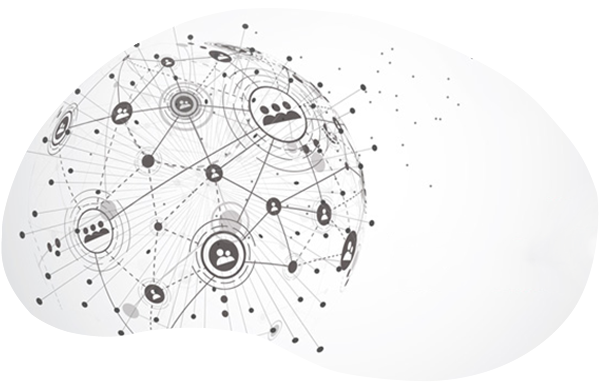What attracts people to choose sales as a career? While many get into sales by chance, it’s a choice for many others. Creative and confident people often enjoy applying their skills to cater to the needs of people while others approach sales for the diverse earning potential it offers.
Direct selling companies often leverage the latter to attract people to join their salesforce. The exciting and lucrative opportunities that a sales career offers both in the personal and professional life are what get people tied to the job.
There are different ways by which a company appreciates its distributors' efforts. While monetary benefits are primary, loyalty and rewards programs also contribute to retaining distributors.
Direct selling organizations compensate their workforce through bonuses, commissions, and incentives. While all seem the same with each providing monetary benefits to the salesforce, each has its own unique identity in satisfying and engaging distributor interests.
Bonus
Bonuses are often tied to individual performance rather than teams’. They are awarded after specific or special goals or targets are met. It is always that “something extra” individuals get as an appreciation of their skills.
Companies choose to appreciate an individual with a bonus once they reach above a particular growth threshold. It can either be sales or other related metrics that an individual accomplishes. In direct selling, while commissions are indicative of a fixed payment baseline, bonuses reward distributors for their exceptional achievements.
Advantages of offering bonuses

Creates an increased sense of motivation

Establishes an emotional relationship with the brand

Encourages healthy competition

Increases productivity

Elevates brand value
How to set up a bonus system
A bonus plan is designed depending on the size and goals of the company. A well-structured bonus program can motivate employees or your salesforce in improving their productivity. Let’s look into the different steps to creating a successful bonus system.
List your business goals
Outline what you are targeting to achieve through a bonus plan. Start with shorter achievable goals and then build on them. Explain this to your team at the beginning itself for them to understand and plan in advance what they must aim to achieve.
Identify the right bonus type for your business
Identifying the right bonus type is as important as laying out your business goals. Work with your team to identify which bonus would seamlessly fit into your business and complement your business goals at the same time.
Discuss with your team
Some may prefer money while others may prefer a trip or freebies. Run a full-on discussion with your team before deciding on the bonus type.
Keep it simple and structured
Easy-to-understand and achievable bonus programs can help your employees plan and achieve their goals. Complex bonus programs can wear your employees off.
Decide on the reward amount and frequency
“How often should you offer them a bonus and how much” is a deciding factor for the success of your bonus program. Too much will negatively impact your revenue and too little would not do the needful. So strike a balance between the two.
Ensure real-time payouts
After launching your bonus programs, make sure you pay them on time. Real-time rewards motivate employees more than delayed ones.
Track program performance
Always track the performance of your bonus programs among your employees. Measure the impact it is having on your employee morale and on your sales.
Examples of effective bonus structures
Profit sharing
Organizations choose to share certain percentage of their company profit as bonus to their employees. This type of bonus also creates a feeling of being an intangible asset of the organization.
Spot bonus
Organizations reward employees on the spot for their outstanding performance. Employees may receive spot bonuses for accomplishing something above their threshold or for closing a sales target well before the stipulated deadline. Spot bonuses brings in a sense of surprise and excitement for employees.
Non-cash bonus
Apart from awarding cash bonuses, companies can choose to reward their employees in a variety of ways. This could be an award, a trip, a memento, brand coupons or holiday coupons. Rewarding them in more ways than one excites them to boosting their productivity.
Referral bonus
When employees bring in new hires or when sales representatives bring in new referrals, companies can acknowledge their effort with a referral bonus. Companies can reward employees for repeat referrals or set a limit according to their preference.
Milestone bonus
When an employee accomplishes a milestone, goal, or a sales target, companies reward them with a milestone bonus. Milestones can be anything from a complete goal or minor milestones within the goal. Companies can tie bonuses with specific goals for employees to start working on achieving the bonus at the beginning itself.
Longevity bonus
Companies reward employees for their long-term commitment to the company with a longevity bonus. When an employee stays with the company for a specific time period and is awarded for the same, they form an amiable relationship with the company.
Commissions
Unlike bonuses or incentives, commissions are inextricably linked to sales. It is often a “pay per sale” criteria that often follows a set structure. The sales compensations of direct selling companies often adopt a commission model that is always outlined in their distributor agreement. It never goes above or below the fixed amount.
Commissions are often a percentage of the product or service sold. While this percentage can differ depending on a variety of factors as decided by the company, it is also a crucial factor that boosts sales. Sales-centric commissions encourage distributors to sell more, often.
Advantages of offering commissions

Creates unlimited earning potential for your salesforce

Increases sales conversions

Acknowledges hard-work

Attracts the best sales talents

Flexible earning opportunities

Economical for the organization
How to calculate commission
Commissions are often paid as a percentage of the sales made by the salesperson. It is easier when your salesforce is smaller. As it grows wider, you will need commission software that can handle commission payout for millions of sales representatives.
Examples of effective commission structures
Sales commissions
Awarded exclusively for the sales made, sales commissions motivate salespeople to bring in more sales and invest more time in upgrading their productivity. This is a relatively simple and popular commission model adopted by companies of all sizes across various sectors.
Base salary plus commission
Companies often set a basic pay for their employees and add a commission percentage to it. The commission is paid together with the basic pay on the achievement of the specific goal as set by the company.
Gross margin commission
This type of commission considers the expenses involved in the making of the product. Hence the commission is paid only on the profit made. This narrows down the chances of discounting product prices and encourages upselling the product.
Residual commission
Encouraging extended customer relationships and repeat business, the residual commission acknowledges a salesperson's efforts to generate revenue with existing customers. This commission is most suitable for businesses in the services industry.
Revenue commission
Salespersons earn a percentage of the revenue they generate from sales. Companies that focus on larger business goals than just profits can adopt a revenue commission model.
Enhance the transparency of your commission and bonus payouts with an accurate commission software
Incentives
While commissions and bonuses are a type of incentive, unlike them, incentives are mostly awarded spontaneously for whatever reason the company prefers. It could be a sales promotion, acquiring customers way more than the stipulated goal, upselling products, attending training courses, achieving new certifications, and more. It rests solely on the company’s discretion to award incentives.
As opposed to commissions, incentives are dynamic in nature. Depending on the company’s will, incentives can be paid for any reason, in any form, at any time of the year. It can be discounts, offers, coupons, goodies, or rewards that often motivate individuals to perform better. Incentives also offer motivation on a higher level as it is not tied to sales or goals.
Incentives thus are a splendid way to boost distributor engagement and morale.
Advantages of offering incentives

Increases employee retention

Encourages collaboration and teamwork

Increases the value of business goals

Boosts employee engagement

Instills company loyalty

Creates greater emotional impact with the brand
How to set up an effective incentive program
An incentive program at best should be employee-centric. Selfless incentives can create long-term employee relationships and boost overall employee productivity. While it is true that an incentive program helps organizations achieve their diverse goals, it is also as important to consider employee interests and benefits.
Consider your goals
The first and foremost thing that goes into building any reward program is to analyze whether it aligns with your company goals. Design programs that complement your financial and sales goals.
Consider the preferences of your salesforce
Preferred incentive type motivates your salesperson rather than any random reward. Consult with your team to identify the most preferred incentive type.
Create programs that everyone can win
Offer everyone an opportunity to win to encourage underperforming employees. When everyone feels adequately rewarded for their efforts they feel motivated to contribute more.
Track the metrics
Constantly monitor your incentive program to measure its impact on your sales performance. Track metrics such as participation rate, redemption rate, ROI, employee and customer feedback to identify needs for improvement.
Examples of effective incentive programs
Pre-sales incentives
While your salesforce may work quite hard to convert a deal, all of them might not end successfully. Companies can offer pre-sales incentives to motivate their salesforce who have reached certain levels of the conversion process.
Awards and recognition
Trophies, mementos, certificates, and awards, all contribute to the excitement of your salesforce. Appreciating in public with these recognitions improves their confidence and attaches them to the brand.
Referral incentives
The most common type of incentive, referral incentives award employees for the number of referrals they bring. Repeat referral programs accelerates the pace at which your salesforce brings in their referrals.
Rank or tier-based incentives
Tying special incentives or higher percentages to particular tiers or ranks can help encourage your employees to climb up the ladder in the sales hierarchy.
Omnichannel incentives
Appreciate your employees’ omnichannel efforts with incentives for conversions made from diverse channels. This helps increase brand awareness and promotes employee creativity.
Fun gifts
While cash rewards are often preferred, non-cash incentives such as fun trips, gadgets, and goodies create a sense of excitement and encouragement among employees to meet specific sales goals.
Loyalty points
Linking your loyalty program to your incentive program can double the benefits of rewarding your salesforce. It can improve your salesforce’s brand loyalty and is a significant boost to your loyalty program.
Bonus vs. Commissions vs. Incentives
| Bonus | Commissions | Incentives |
|---|---|---|
| Individual performance | Individual/Team performance | Individual performance |
| Not sales bound | Sales bound | Not sales bound |
| Not pre-determined | Percentage of product/service | Not pre-determined |
| Cash or non-cash | In cash | Cash or non-cash |
| Flexible in nature | Flexible in nature | Flexible in nature |
| Unpredictable | Predictable | Unpredictable |
| Not on an agreement | Depends on an agreement | Not on an agreement |
| Inspires distributors | Pressurizes distributors | Inspires distributors |
| Source of motivation | Seen as a “pay for sale” | Greater emotional impact |
Commission vs. incentive – Key difference between incentive and commission
While the commission is considered as a type of incentive, in the compensation structure it differs from incentives based on various factors. Commissions usually follow a set structure and are strictly paid for the sales an individual makes where as incentives are added rewards an individual gets for accomplishing a special goal or target. Incentive in that case acts a level above the commissions in extending warmer brand relationships.
Incentive vs. bonus – Key difference between incentive and bonus
Both incentives and bonuses share some common attributes but differ in the way they are paid out. Bonuses are paid for meeting some set goals that are always part of the compensation structure whereas incentives are paid spontaneously for specific individual achievements. The main benefit of incentives and bonuses is that both create an emotional connection with the brand.
Commission vs. bonus – Key difference between commission and bonus
As opposed to a bonus, a commission is paid for the sales made and is often pre-determined. It is a part of the sales compensation agreement whereas bonuses are paid irrespective of the sales results. Bonuses may or may not be a fixed amount a salesperson gets for attaining a specific goal. Commissions leave no strings attached to the brand whereas bonus creates a greater sense of motivation and brand love.
Direct sales incentives – Types of commissions and bonuses in direct selling
Compensation plans in MLM are distinct and structured. Each has its own commissions and bonuses. This varies based on how the compensation plan is structured and the profit requirements of the company.
Let’s take a look at some of the popular bonuses and commissions direct selling companies employ.
Sponsor bonus
When a new member is introduced into the system, the person referring the member becomes the sponsor, and the referred member, the downline. The sponsor receives a percentage of the enrolment package or products purchased by their new downline as a bonus. This is called a sponsor bonus or referral bonus.
Pairing bonus
In a binary MLM plan, each time a sponsor fills the right and left leg of the binary tree he/she earns a pairing bonus. It solely rests upon the company on how much should be paid as a pairing bonus to a particular individual.
Matching bonus
The bonus received by the sponsor when the downline they sponsored makes a sale is called a matching bonus. The matching bonus extends to multiple levels given that each of the downlines is directly introduced to the system by the sponsor.
Rank advancement bonus
Focused mainly to boost distributor development, a rank advancement bonus is paid when a distributor reaches a higher rank. As the distributor achieves higher levels, the bonus also increases. The bonus criteria also mandate that distributors must maintain the rank level otherwise they will be downgraded to lower ranks.
Fast start bonus
Besides the agreed MLM plan commissions, companies choose to motivate their new distributors with a considerable percentage of their initial sales during a specified time period as a fast start bonus. This acts as an initial incentive that builds a warm brand relationship.
Party bonus
In a home party plan, the consultant or host hosts a party, invites guests, and introduces them to the products. When the guests purchase the products and join the company as a party plan consultant, the host receives a bonus. The bonus will be a percentage of the product package the guest purchases to enroll in the company.
Infinity bonus
Paid on the total group volume, infinity bonus is paid to distributors who achieve a particular rank as set by the company. If any downline of this particular distributor achieves the same rank, then the distributor will stop receiving the infinity bonus. The bonus is intended to keep distributors maintain sales to uphold their rank status.
Roll-up or compression bonus
When a distributor is inactive or fails to bring in sales then the distributor below him will be rolled up to the position of the inactive distributor and earns the bonus. This encourages distributors to stay active and engaged with the brand.
Leadership bonus pool
A percentage of the total commissionable volume will be kept in a pool until a distributor qualifies the criteria set by the company and receives the leadership pool bonus.
Level commissions
Every distributor receives commissions when their downline places an order. The commission will be a percentage of the order generated. The number of downline levels up to which the level commissions are applicable is set by the company. This commission also takes into account the rank of the distributor. Distributors with higher ranks earn more commission.
Position bonus
In a matrix MLM plan, the sponsor receives a bonus for positioning a new downline in their downline team provided that the new member is placed inside the same matrix as the sponsor.
Matrix completion bonus
Just as the name implies, in a matrix MLM plan a distributor receives a bonus on completion of the specified matrix.
Cycle commission/Board split commission
In a board MLM plan, when a distributor completes a board and moves on to the next, he/she will assume a new position in the new board and becomes eligible to receive cycle/board split commission. This process is automated and easily managed with the help of Board MLM software.
Re-entry bonus
Associated mostly with a matrix MLM plan, re-entry bonus is awarded to a distributor or sponsor once their downlines complete multiple matrices or boards. The sponsor then receives a re-entry to the same board and receives a re-entry bonus.
Generation bonus
Generation MLM plan pays its distributors a percentage of sales made by their downline generations. If a distributor has multiple generations, the percentage of the generation bonus varies.
Direct referral bonus
Distributors receive direct referral bonuses upon referring new downlines into the system. The bonus percentage depends on the company and its compensation plan. It also varies with an increasing number of referrals.
Overriding bonus
Intended to retain the top performers in an organization, an overriding bonus is paid to higher-level distributors based on their teams' sales volume. The organization has preset criteria based on sales volume to qualify for the overriding bonus. Distributors at higher levels get paid more.
Behavioral differences between commissions vs. bonuses and incentives
Companies decide to acknowledge their salesforce efforts with one or all of these compensation methods but what organizations often miss to notice is the impact it creates on the salesforce. The effects it can have on performance and brand and customer relationships can be monumental in the growth of the company.
Hence it is key for companies to take into account the behavioral effects their compensation plans can have on their salesforce. While this does not mark a specific compensation as good or bad, organizations must consider the end in mind before tying a specific compensation type to a goal.
| Commissions | Bonuses/Incentives |
|---|---|
| Focuses more on prospects rather than customers | Creates a warm connection with the brand |
| Considers only quality leads | Works on every chance to improve the brand |
| Instills self-interest | Builds team collaboration |
| Little interest in customer support | Interested in establishing strong customer relationships |
| Concentrates only on making sales | Invests in improving product and brand knowledge |
Common challenges with bonus, commission, and incentive programs
Compensating your salesforce with bonuses, commissions, and incentives is sure to lift their spirits and increase sales but there are imminent challenges associated with it.
Unpredictable expenses
Companies providing a wide range of compensations could incur expenses inadvertently. This often happens when the companies fail to monitor if their payouts are in line with their profits or possible overpayments.
Aggressive sales
With an overdose of excitement about getting rewarded for their sales, there is a chance your salesforce may apply high-pressure tactics on customers for faster conversions. While this may offer you short-term sales hikes, it can damage the reputation of the brand and customer relationships.
No long-term commitment
Rewards make your salesforce happy and motivated. True that. But there is also a darker side. In due course, their commitment to the brand’s goodwill may slowly fade off and will result in higher attrition rates.
Rewards wear out salesforce
Sooner or later, these rewards turn out to be a stress maker for your salesforce. The idea of rewarding your salesforce for what they have achieved or for only what they achieve will exhaust them in the long run.
Cultivates unhealthy competition
While healthy competition is good for the sustainable growth of the organization and its salesforce, unhealthy competition hampers relationships. The notion of getting ahead of others builds a selfish motive that eventually leads to a “whatever it takes to succeed” mentality.
Discover how we build resilient businesses with advanced MLM functionalities
Best practices for creating effective bonus, commission, and incentive programs
Successful reward programs offer businesses increased sales, a happy salesforce, and satisfied customers. All three factors create a balance and positively influence organizational growth. Hence organizations must maintain a balance between the three.
How do you create successful reward programs?
Strike a balance
Be it commissions, bonuses, or incentives, striking a balance between your reward strategy and your organizational goals is key to running a stable reward program. When aligned with your organizational goals you will be able to better manage your reward programs.
Offer stable pay
Establish stable rewards to maintain consistency and stability in your reward programs. However, it is important to monitor the performance of your reward programs on your salesforce and your revenue. You could alter your reward offerings according to your changing business conditions but maintaining it straight and steady counts towards your organizational stability too.
Set achievable goals
Easier to achieve goals may drain your revenue and hard-to-achieve goals may drain your salesforce off their spirits. Hence setting realistic goals is key to motivating your salesforce and reserving your revenue.
Launch and monitor
After introducing your incentive programs monitor their performance—the impact it is creating on your salesforce and your organizational performance. Review your plans periodically to make sure they are still aligned with your organizational goals.
Employ a commission software
Commission software can make your task of configuring, managing, and monitoring compensations easy and hassle-free. It manages complex data and ensures accurate and real-time payouts. It can also track the individual performance of your salespersons and provide sales and commission analytics. Employing commission software is an easy way to make intelligent business decisions.
With competition heating up the market and innovative technologies and fresher marketing techniques invading, companies must invest quality time in making informed decisions while fixing their salesforce compensation.
Design and manage commissions that perfectly sync with your business goals









Leave your comment
Fill up and remark your valuable comment.